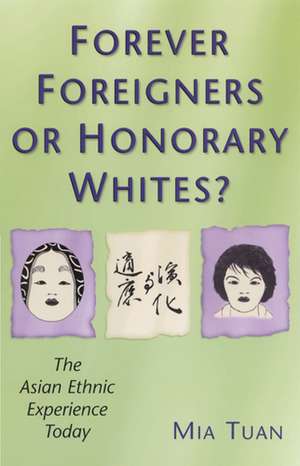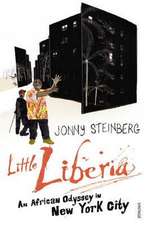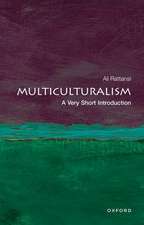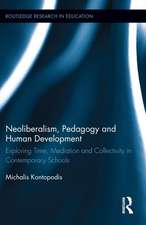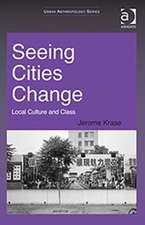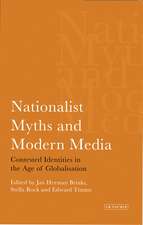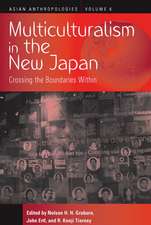Forever Foreigners or Honorary Whites?: The Asian Ethnic Experience Today
Autor Mia Tuanen Limba Engleză Paperback – mar 1999
What does it mean to be an Asian-American in the United States today? Are Asian-Americans considered "honorary whites" or forever thought of as "foreigners?"
Mia Tuan examines the salience and meaning of ethnicity for later generation Chinese- and Japanese-Americans, and asks how their concepts of ethnicity differ from that of white ethnic Americans. She interviewed 95 middle-class Chinese and Japanese Californians and analyzes the importance of ethnic identities and the concept of becoming a "real" American for both Asian and white ethnics. She asks her subjects about their early memories and experiences with Chinese/Japanese culture; current lifestyle and emerging cultural practices; experiences with racism and discrimination; and attitudes toward current Asian immigration.
Mia Tuan examines the salience and meaning of ethnicity for later generation Chinese- and Japanese-Americans, and asks how their concepts of ethnicity differ from that of white ethnic Americans. She interviewed 95 middle-class Chinese and Japanese Californians and analyzes the importance of ethnic identities and the concept of becoming a "real" American for both Asian and white ethnics. She asks her subjects about their early memories and experiences with Chinese/Japanese culture; current lifestyle and emerging cultural practices; experiences with racism and discrimination; and attitudes toward current Asian immigration.
Preț: 283.80 lei
Nou
Puncte Express: 426
Preț estimativ în valută:
54.31€ • 58.97$ • 45.62£
54.31€ • 58.97$ • 45.62£
Carte tipărită la comandă
Livrare economică 23 aprilie-07 mai
Preluare comenzi: 021 569.72.76
Specificații
ISBN-13: 9780813526249
ISBN-10: 0813526248
Pagini: 216
Dimensiuni: 140 x 216 x 15 mm
Greutate: 0.25 kg
Ediția:None
Editura: Rutgers University Press
Colecția Rutgers University Press
ISBN-10: 0813526248
Pagini: 216
Dimensiuni: 140 x 216 x 15 mm
Greutate: 0.25 kg
Ediția:None
Editura: Rutgers University Press
Colecția Rutgers University Press
Notă biografică
MIA TUAN is an assistant professor of sociology at the University of Oregon.
Cuprins
Tables and Figures
Acknowledgments
"The Ethnic Game"
1 Introduction
2 Racialized Ethnics Compared to White Ethnics: Visiting the Theoretical Debates
3 Cars, Girls, and Baseball--but with an Asian Twist: Growing Up Asian Ethnic
4 "I knew that I was different": Childhood Neighborhood Influences
5 "Practicality always steps in": The Continuing Erosion of Cultural Traditions in Adulthood
6 "I'm an American with a Japanese look": Emerging Identities and Practices
7 Conclusion: The Racialized Ethnic Experience
Appendix A. Interview Questionnaire
Appendix B. List of Responsibilities
Notes
Bibliography
Index
Acknowledgments
"The Ethnic Game"
1 Introduction
2 Racialized Ethnics Compared to White Ethnics: Visiting the Theoretical Debates
3 Cars, Girls, and Baseball--but with an Asian Twist: Growing Up Asian Ethnic
4 "I knew that I was different": Childhood Neighborhood Influences
5 "Practicality always steps in": The Continuing Erosion of Cultural Traditions in Adulthood
6 "I'm an American with a Japanese look": Emerging Identities and Practices
7 Conclusion: The Racialized Ethnic Experience
Appendix A. Interview Questionnaire
Appendix B. List of Responsibilities
Notes
Bibliography
Index
Recenzii
TuanÆs book is a major contribution to Asian American studies because she lets her respondents speak. . . . Her thesis is clear: that no matter where Asian Americans go they cannot hide from their race and ethnicity. In addition, Tuan provides a picture to how a pan-ethnic Asian American cultural experience emerges not from a common cultural tradition, but through a common experience of racialization. TuanÆs book is essential reading for those that conduct research and teach on the experiences of American born Asians.
Forever Foreigners or Honorary Whites? informs the reader of the racialized ethnic experiences as felt and lived by third-plus-generation Chinese and Japanese Americans and California. To question the plethora of æethnic optionsÆ for Asian Americans, Tuan opens the book with one of the most alarming examplesùthe Ito DÆAmato incidentùthat blatantly denigrates Americans of Asian descent as æforeigners.Æ. . . the analytical contrast between modernizers and traditionalists provides a consistent integrating theme that enhances the bookÆs usefulness in advanced undergraduate or graduate courses.
Mia Tuan investigates the role of ethnicity in the lives of later-generation Asian Americans. As the title suggests, the study engages the debate over the applicability of the white ethnic assimilation paradigm in addressing the experiences of racialized ethnic minorities. Tuan concludes that Asian Americans can choose the cultural practices and values they wish to maintain in their private lives but cannot escape identification in ethnic and racial terms when in public. . . . TuanÆs study allows later-generation Asian Americans to convey their experiences. Their stories and opinions provide an understanding of the changes occurring in one segment of contemporary Asian America.
A compelling account of the ongoing acculturation of West Coast Asian Americans and their continuing experience of racism. Mia Tuan uses her sociological skills to paint a disturbing portrait of the hidden and not-so-hidden injuries of race suffered by Californians who have been here form many generations, as well as an early warning of what the future might hold for some of our newest immigrants.
This well-written book advances our understanding of the changing and situational construction of American and ethnic identities by exploring the ways in which multigenerational Asian Americans constitute, express, and transform their identities.
Descriere
Mia Tuan examines the salience and meaning of ethnicity for later generation Chinese- and Japanese-Americans, and asks how their concepts of ethnicity differ from that of white ethnic Americans. She interviewed 95 middle-class Chinese and Japanese Californians and analyzes the importance of ethnic identities and the concept of becoming a "real" American for both Asian and white ethnics. She asks her subjects about their early memories and experiences with Chinese/Japanese culture; current lifestyle and emerging cultural practices; experiences with racism and discrimination; and attitudes toward current Asian immigration.
